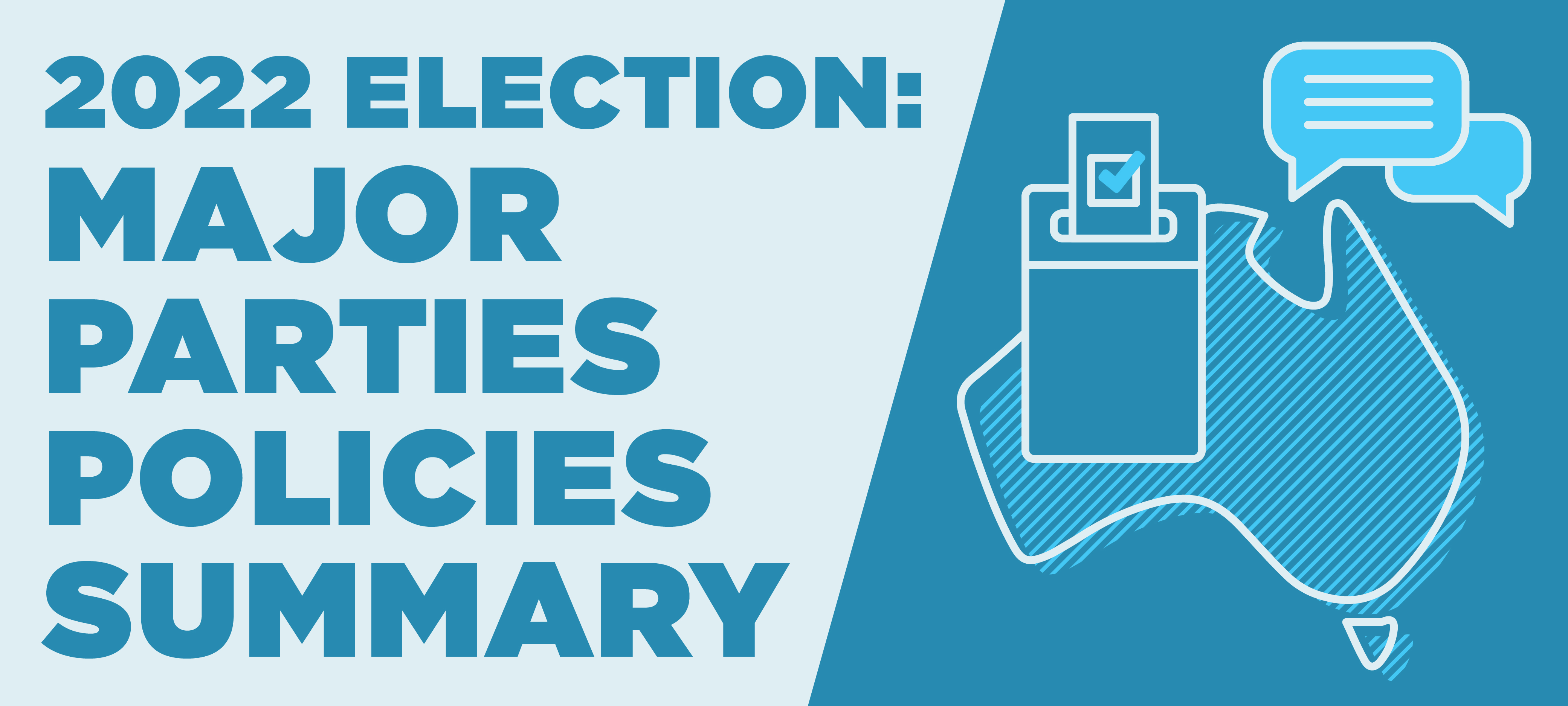 |
This week
IN THE NEWS: 2022 Election Policies Summary, AML Capability for 000 Calls, and more.
|
 |
|
With a federal election looming, Australia’s major parties have each outlined their communications policies. ACCAN has compiled a summary of the Coalition (Liberal and the National parties), Labor, and the Australian Greens’ policies and priorities as voters begin heading to the polls. For more information, visit our Hot Issues Blog [ACCAN].
|
|
|
|
Advanced mobile location, or AML, is a technology that has recently been introduced in Australia for the Triple Zero Emergency Call Service after previously rolling out in Europe, the UK and New Zealand. In an emergency, lives can depend on timely, accurate information. AML is designed to provide Emergency Call Service operators with precise location coordinates when a caller dials Triple Zero from a mobile. For more information about AML, visit our Hot Issues Blog [ACCAN].
|
|
In August 2021, Telstra announced that any standard national mobile calls from ‘payphones’ would be made free. The Department of Infrastructure, Transport, Regional Development and Communications are currently considering the long-term role of payphones, especially because most Australians now have access to a mobile phone with service. To read ACCAN's thoughts about payphones in the changing communications landscape, visit our Hot Issues Blog [ACCAN].
|
ACCANect 2022: Save the Date
We’re excited to announce that our annual ACCANect Conference for 2022 has been scheduled for Wednesday the 14th of September, so be sure to mark your calendars. All proceedings will take place online. Stay tuned for more information about Australia’s premiere telecommunications conference [ACCAN].
|
|
Lexis Nexis’ Myfanwy Wallwork met with ACCAN’s Wayne Hawkins for episode 5 of the Human Rights and Technology podcast. Myfanwy and Wayne discuss accessibility to telecommunications, equipment and affordability for the disabled and how more can be done [Lexis Nexis].
|
|
TPG Telecom, Optus and Telstra will share $28.2 million in federal government grants for 66 projects aimed at addressing mobile phone blackspots in outer-urban fringe areas. Prime Minister Scott Morrison and Communications Minister Paul Fletcher announced the mobile projects on Thursday, with funding provided through the digital economy strategy in last year’s budget [iTNews].
|
|
Social media giant Facebook’s efforts to show it can be a responsible player in Australia’s democracy has suffered a blow as the federal election campaign swings into action. The ad library report from Facebook’s parent company Meta, which tracks political ads across Facebook and Instagram, has not displayed new data since Monday last week — the first official day of campaigning [SMH].
|
|
A safety feature that uses AI technology to scan messages sent to and from children will soon hit British iPhones, Apple has announced. The feature, referred to as “communication safety in Messages”, allows parents to turn on warnings for their children’s iPhones. When enabled, all photos sent or received by the child using the Messages app will be scanned for nudity [The Guardian].
|
|
The competition watchdog has delayed its formal consultation on an update to NBN Co’s controversial wholesale pricing model until late May to address issues around the release of commercially sensitive information [AFR].
|
|
From May, the 2100 Mhz 3G spectrum band will be redirected to the Optus 4G network to improve speed and reliability and help with the expansion of the company’s 5G network. Telstra and Vodafone closed their 2100 Mhz 3G bands in 2019 [TechGuide].
|
|
|
|
WebNews #559
Unsubscribe
from this mailing
click here
|
|
Tel: (02) 9288 4000
Email: media@accan.org.au
Web: accan.org.au
Twitter: @accan_au
Facebook.com/accanau
LinkedIn: accan.org.au/LinkedIn
|
| |
|
Although we take care to direct subscribers to sites with accurate and reliable content, we advise that ACCAN is not responsible for the content within external sites and has no control over the views, services or information contained therein. Information contained on external sites may not necessarily reflect ACCAN's policy, standards or beliefs.
The Australian Communications Consumer Action Network's representation of residential and other consumers' interests in relation to telecommunications issues is made possible by funding provided by the Commonwealth of Australia under section 593 of the Telecommunications Act 1997. This funding is recovered from charges on telecommunications carriers.
|
|
|

